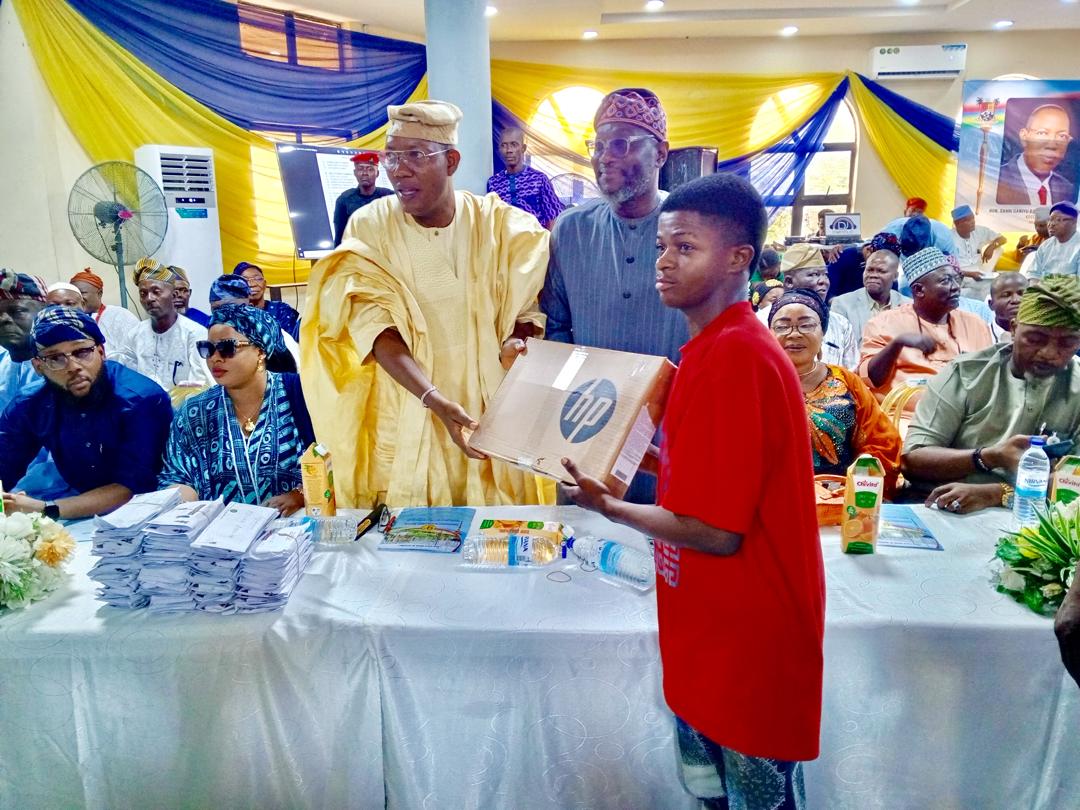Hon. Okanlawon Sanni, representing Kosofe Constituency I at the Lagos State House of Assembly, has called for a comprehensive strategy to engage the youth in agriculture to boost food security in the state. Speaking during the 9th Constituency Stakeholders’ Meeting, themed “Ensuring Food Security for a Sustainable Future: Youth Participation & Home-Grown Farming,” Sanni emphasized the need for modern farming techniques, technology, and research to be at the forefront of agricultural development.
The lawmaker, who also serves as Chairman of the House Committee on Local Administration, Chieftaincy Affairs, and Rural Development, reiterated the assembly’s commitment to collaborating with the executive to develop policies that will provide young people with access to finance, markets, and agricultural extension services. “It’s crucial to promote sustainable consumption and reduce waste as part of this drive,” Sanni stated.
Highlighting the role of property owners, Sanni urged residents of Kosofe Constituency I to dedicate their lands to agricultural purposes, thereby encouraging wider participation in farming. “To secure our food future, we need to ensure everyone plays their part, especially the youth, who can bring innovation and entrepreneurship into agriculture,” he said.
In alignment with this, Sanni pointed to First Lady Mrs. Oluremi Tinubu’s recent initiatives, such as the “Every Home A Garden Competition,” launched in July 2024 to promote home-grown farming. The initiative incentivizes women across Nigeria with a ₦20 million reward for the best home gardens, further underlining the government’s support for grassroots farming.

Additionally, the recent inauguration of the “Young Farmers Club of Nigeria” by the First Lady on September 17, 2024, aimed to foster agricultural interest among young Nigerians, marking the induction of 240 members into farming. “This initiative is critical in catching them young and nurturing a generation capable of transforming agriculture using modern techniques,” Sanni remarked.
Sanni noted that food security is a multifaceted issue requiring a comprehensive approach. “Food security isn’t just about growing more crops; it’s about making food available, affordable, and nutritious,” he said. He stressed the need for agricultural practices that withstand climate change and economic challenges while ensuring access to healthy food.

The lawmaker expressed optimism that with proper engagement, Lagos could transition from being a consuming state to a producing one in the agriculture value chain. “The goal is to turn the tide from ‘Ebi n pawa’ (we are hungry) to ensuring food sufficiency across the state,” he added.

Speaking on the importance of youth involvement in agriculture, Dr. Bukola Sadiku, a resource person from the Ministry of Agriculture, noted that only 37% of the youth population is engaged in farming, a number that needs urgent improvement to address food insecurity in the state. Sadiku emphasized that deliberate actions must be taken to attract more youth into agriculture to safeguard future food supply.

Kosofe LCDA Chairman, Mr. Moyosore Ogunlewe, echoed the need for government support for local farmers, stressing the importance of improving infrastructure and promoting sustainable farming practices. “Home-grown farming is crucial to achieving food sufficiency,” he said.

The Iya-Oloja of Kosofe also added her voice, emphasizing that the state government’s intervention would significantly contribute to achieving the food security vision outlined by the stakeholders.



